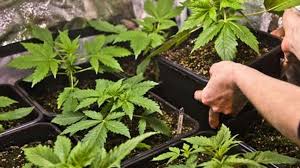
Nature of work
The work of agricultural scientist plays an important part in maintaining the Nation’s food supply through ensuring agricultural productivity and the safety of the food supply. Agricultural scientists study farm crops and animals and develop ways of improving their quantity and quality. They look for ways to improve crop yield and quality with less labor, control pests and weeds more safely and effectively, and conserve soil and water. They research methods of converting raw agricultural commodities into attractive and healthy food products for consumers.Depending on the agricultural or food scientist’s area of specialization, the nature of the work performed varies.
There's many competences of this job, such as:
Plant science. Agronomy, crop science, entomology, and plant breeding are included in plant science.
Soil science. Soil scientists study the chemical, physical, biological, and mineralogical composition of soils as they relate to plant or crop growth.
Animal science. Animal scientists work to develop better, more efficient ways of producing and processing meat, poultry, eggs, and milk.
Environment of work
Agricultural scientists involved in management or basic research tend to work regular hours in offices and laboratories. The working environment for those engaged in applied research or product development varies, depending on the discipline of agricultural science and the type of employer. For example, food scientists in private industry may work in test kitchens while investigating new processing techniques. Animal scientists working for State or university research stations may spend part of their time at dairies, farrowing houses, feedlots, farm animal facilities, or outdoors conducting research associated with livestock. Soil and crop scientists also spend time outdoors conducting research on farms and agricultural research stations. Entomologists work in laboratories, insectaries, or agricultural research stations, and may also spend time outdoors studying or collecting insects in their natural habitat. Professional life
Employment of agricultural scientists is fairly stable during difficult economic times. Compared with other occupations, layoffs are less likely among agricultural scientists. This is true because food is a necessary item. The demand for food changes very little with economic activity. People buy roughly the same amount of food in good times and bad. Agricultural scientists are using new avenues of research in biotechnology to develop plants and food crops that require less fertilizer, herbicides, and even less rain.Graduates with advanced degrees will be in the best position to enter jobs as agricultural scientists. However, competition may be keen for teaching positions in colleges or universities and for some basic research jobs, even for doctoral holders. A bachelor’s degree in agricultural science is useful for managerial jobs in businesses that deal with ranchers and farmers, such as feed, fertilizer, seed, and farm equipment manufacturers; retailers or wholesalers; and farm credit institutions.
Range of typical starting salaries: 50000 SYP.
Getting the job
College degree in agricultural science is all that is needed for some jobs, but further schooling is required to do research or college teaching. Most agricultural scientists also need a basic understanding of business. Being able to use basic statistical techniques is also a plus. More employers want to hire workers with good computer skills.Many colleges and universities offer agricultural science degrees or agricultural science courses. Degrees in related sciences, such as biology, chemistry, or physics, or in a related engineering specialty also may qualify people for many agricultural science jobs.
Skills
There's some skills the agricultural scientists need to have it and work to improve it, such as:· Communication skills. They must be able to explain their studies: what they were trying to learn, the methods they used, what they found, and what they think the implications are of their findings. They must also be able to communicate well when working with others, including technicians and student assistants.
· Critical-thinking skills. they must use their expertise to determine the best way to answer a specific research question.
· Data-analysis skills. Because they are collecting data including quantitative surveys. They must then apply standard data analysis techniques to understand the data and get the answers to the questions they are studying.
· Decision-making skills. they must use their expertise and experience to determine whether their findings will have an impact on the food supply, farms, and other agricultural products.
· Observation skills. they conduct experiments that require precise observation of samples and other data. Any mistake could lead to inconclusive or inaccurate results.
Sources and references
If you need any further information on what is included in this file, you can visit the following websites: www.ajol.info/index.php/jafs, Journal of Agriculture and Food Sciences
pubs.acs.org/journal/jafcau, Journal of Agricultural and Food Chemistry
Arab Standard Classification of Occupations, 2008, Ed. Arab Labor Organization.
